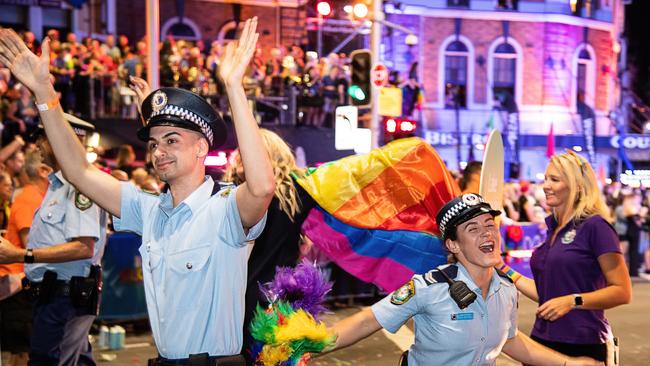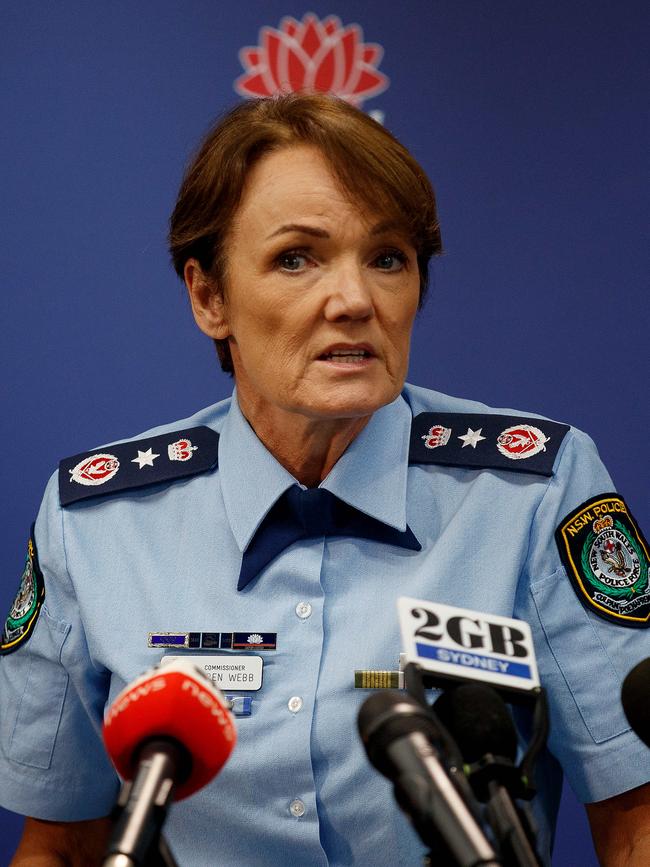
In response to the news that a police officer had been charged, organisers of the Sydney Gay and Lesbian Mardi Gras announced that uniformed police were no longer welcome to march in this weekend’s parade, and if they wished to march they would have to do so in plain clothes. Explaining its rationale in a statement, the board declared that LGBTQIA+ communities needed “space to grieve”.
But the banning of uniformed police from this weekend’s march may not have much to do with grief or the tragic double murder at all. Staff members associated with the Sydney Gay and Lesbian Mardi Gras have a history of antipathy towards law enforcement, and a track record of successfully banning uniformed police from other pride events.
Under his executive directorship of the Auckland Pride March, Max Tweedie (a former co-leader of the New Zealand Greens’ youth wing) barred uniformed police from marching at Auckland Pride, causing major sponsors to withdraw and board members to resign.
Notwithstanding, Tweedie was appointed partnerships manager at the Sydney Gay and Lesbian Mardi Gras just last year.
The Australian reported on Wednesday that Sydney Gay and Lesbian Mardi Gras board member and law student Luc Velez is aligned with the Pride in Protest group. Pride in Protest has called repeatedly for uniformed police to not only be banned from the Sydney Mardi Gras but “disarmed, defunded, and dismantled” as well.
A 2020 Pride in Protest open letter called for the NSW Police Force float and the NSW Corrective Services float to be scrapped, citing that “the role of police and prisons in our society is something we should all be re-evaluating”.
Although much media attention has blown up around the decision to ban police, the current chaos engulfing the Mardi Gras is not unique to Sydney and is not unique to this year’s pride parade.
It is part of a larger pattern of activists creating dysfunction and conflict inside whatever institutions they are associated with. In recent years, and in cities all over the world, boards of non-profits and charities that organise pride parades have similarly found themselves beset by drama.
In 2021, the board of the Boston Pride Parade imploded, dissolving itself, leaving the city without a pride march the following year. Last year Halifax’s Pride Parade was beset by rumours of cancellation and accusations of workplace harassment. In 2021 every board member of Pride in London resigned, citing a “hostile work environment”. Much of this turmoil stems from the fact today’s Gen Z activists have radically different goals and tactics than the activists who came before them.

Veteran activists of the gay rights movement, who remember gay hate crimes of the 1960s and ’70s, fought to be accepted into mainstream society and afforded the same freedoms and rights as everyone else. As part of these efforts they built alliances with community organisations and mainstream institutions, including law enforcement. Building alliances didn’t mean they needed to be in agreement on everything, it just meant they could find some common ground.
And for older generations of activists, having uniformed police march in the Sydney Gay and Lesbian Mardi Gras was a big deal. It was a sign that one of society’s most powerful institutions not only accepted the gay and lesbian community but wanted to be part of it itself. In terms of symbolic victory, it was huge.
But that was then and this is now. Younger activists have never lived in an era when gay and lesbian rights were not a given. Many of them would have been too young to vote during the same-sex plebiscite. They have never known a time when the Mardi Gras was not flush with cash and political power. And the fact the Mardi Gras is mainstream has become a problem in and of itself.
“Pride Parades need to retain their essential queerness, be true to their roots in political protest, and challenge the cis/heteronormative status quo,” Tweedie posted on X in 2019. Citing the decision to ban uniformed police from Auckland Pride, he wrote: “Absolute inclusion is a myth. The inclusion of some will always inherently mean the exclusion of others. Police inclusion: more trans, queer, poc feel excluded & unsafe – and vice versa. The question becomes, who’s more important to include? I’m proud we got the answer right.”
Rather than recognise and celebrate the progress previous generations made, activists such as Tweedie would prefer to remain outraged. When examples of discrimination are not readily available, such activists can always be relied on to invent some. So this is why we get the banning of uniformed police from pride parades.
To be clear, the banning of uniformed police from the Sydney Gay and Lesbian Mardi Gras has nothing to do with the tragic deaths of Baird and Davies and everything to do with the confected radicalism of Generation Z.
Police in uniforms have been banned from pride marches in New York, Denver, Seattle, Brisbane and Auckland, with pride march organisers requesting reduced police presences in Toronto, Vancouver, Sacramento, San Francisco, Washington DC and London. You can be sure that it’s not the older generation driving these changes.
Gen Z activists don’t need a space to grieve. They need a space where they can engage in live action role-play, imagining themselves as the Stonewall heroes of decades ago. Having joined the gay liberation movement, years after significant rights had already been achieved, they would rather invent new modes of oppression than celebrate victory.







Earlier this week, Senior Constable Beau Lamarre-Condon appeared in court over the alleged killing of two gay men, Jesse Baird and Luke Davies.